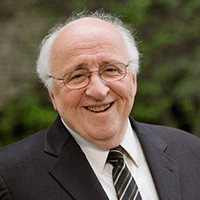When I started writing a book on civility back in the early 1990s, I had some of the "big" incivility issues in mind: culture wars in America, and religious conflict in Bosnia and Northern Ireland. In media interviews and call-in talk show appearances after the book appeared, though, I found out that many people wanted to talk about incivility in the very ordinary activities of life, such as driving on freeways and pushing carts in supermarket aisles.
“Civility” comes from the Latin civitas. To be a civil person is to be "citified." Aristotle taught that the city is the place where we learn to flourish in our humanness. That’s where we encounter folks of different backgrounds and belief systems. It is only when we can be respectful toward others, not because we know them and like them, but simply because they are human, that we can achieve a new level of maturity.
After one of those interviews, I had a chance to put up or shut up about civility.
I drove into a mini-mall to pick up some groceries, and pulled into the first available parking space I spotted. Then I heard some angry horn-blowing from a car facing from the opposite direction. The driver had obviously been waiting for the spot, and I had simply pulled in without noticing. She kept at the honking for several seconds, then gave me the middle finger and searched for another spot.
I decided to go looking for her. When I walked up, she was just getting out of her car.
“I’m very sorry,” I said, “That was very thoughtless of me. I should have been paying closer attention to other drivers.”
She sobbed. “If you knew the kind of day I have had . . . But . . . Oh, never mind!” And she walked away. After many steps she turned around. There were tears in her eyes. “Thank you,” she said softly, and then she walked away.
A few weeks later I returned a rental car, and got into an argument with the attendant. He wanted to charge me an extra hour. I was convinced he was misreading the contract. Our heated exchange was interrupted by a supervisor, a middle-aged African-American woman. She asked what was wrong, and I explained the situation to her in irritated tones. She looked at the contract, and said to her associate, “He’s right.”
The she turned to me, and said, “Honey, you need a hug!”
After a brief embrace, I said, “Thank you,” in the soft tone that I remembered from the woman in the mini-mall lot.
We need an Aristotelian primer for drivers today, when just the slightest bit of human tenderness can undo total strangers. And we could do with some instruction on how rightly to be spiritual in parking lots.
Richard J. Mouw is president of Fuller Theological Seminary.








